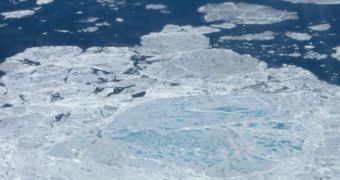Less than four months before the UN climate change summit, scheduled to take place in the Danish capital, Copenhagen, the United Nations' Secretary-General, Ban Ki-moon, decided to undertake a visit to the Arctic, so as to raise awareness among world leaders of the necessity for change. The official is also taking the chance to witness the changes brought forth by human-induced global warming and climate change, in areas that were once pristine and inhabited by a variety of species, the BBC News reports. Ban said recently that the decisions made this year would be “absolutely crucial.”
The new UN summit is the third in a series of such gatherings held over three years at different locations. The last one was held in Poznan, Poland, last December, but not many things were agreed upon by those in attendance. Discussions were stalled when poorer countries, which hold most of the world's rain forests, asked developed nations to assist them financially in their struggle to maintain the “planet's lungs” intact. Not all representatives from rich countries were excited by the idea.
This time, UN officials and green activists hope, a successor for the Kyoto Protocol, signed in 1997, will be set in place. This is the last year when a final agreement can be made, so that it would enter full-strength into effect starting 2010 or 2012. Environmentalists hope for much drastic carbon cuts, and for the introduction of new taxes for heavy polluters, most of which are located in First World countries.
Talking about the devastating situation at the North Pole, the Secretary-General said that, “If this trend is not stopped, we may have a virtually ice-free Arctic within 30 years. This is quite alarming, therefore it is absolutely crucial that world leaders are united to take urgent action. This is my commitment, that is why I'm going to the Arctic.” The official also mentioned that signs for commitment were coming in from many countries, including from Japan's newly elected government. Yukio Hatoyama explained that the Asian nation would reduce its emissions by 25 percent until 2020.
For September 22nd, the official has scheduled a summit of his own, in which he plans to gather even more support for all the initiatives that are to be presented at the Copenhagen meeting, in December.

 14 DAY TRIAL //
14 DAY TRIAL //